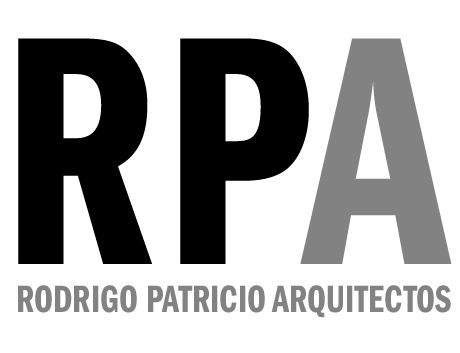RPA | Working Methodology
RPA -Rodrigo Patricio Arquitectos- was founded in 1998 in Porto, Portugal, and is characterized by a multidisciplinary intersection and reunion which, from the very beginning of the design process, gathers a team technically adapted to each program and use.
RPA strongly believes on this approach which acts as an efficient, dense and stimulant intellectual process of design development, aiming and providing a great potential for an intense debate and project uniqueness.
Thus, every project becomes the result of permanent team participation where one's own contribution merges into a joint solution on behalf of a successful design.
Implementing the design process dedicated to each theme/ project has given us more and more certainties about flexibility and efficiency.
Furthermore, RPA tries to divert from groundless visual styles, promoting rather assess for prompt sustained responses adapted to each clients' demands according to expected costs and several contexts (morphological, social, economic and environmental, among others).
RPA Directors lead the whole design process assuring a permanent supervision on every development stage promoting, on a regular basis, a team critical analysis.
Special attention is given to a desired external involvement according to each project requirements. Regularly, from the early-stages of the project design, RPA assures the inclusion and debate of complementary expertise -engineering, landscape architecture, among others- with the clients' monitoring.
Considering the clients' expectations as a starting point, the design development begins invariably with the analysis of the site stimuli and restrictions based on several tools such as drawings (both sketches and technical), models and renders, together with a survey and comparative critical examination of models and formulas, both national and international, similar in its technical features (use, scale and location) in which we acknowledge success, aiming for an inventory of virtues and deficiencies.
Thus, it is created a catalog of prototypes, a whole selection of issues on what should be avoided, admitting this comprehensive tool as an added value towards a unique and highly value concept.
Following the Concept Design phase, besides the technical representation, RPA invests on the production of complementary information based on graphics, diagrams that allow to reassess and diagnose the consistency of the project ideology, attesting principles, references, uses, functional layout, program breakdown, efficient routes, densities, cost-optimization, among others.
Each design is developed in a structured manner aiming for coherence: the project runs several scales from contextualization to the construction details phase.
It is our understanding that responsibility in architecture should be characterized by flexibility and a profitable strategy relying on harmony between several players.
Despite the observation of regulation and legislation, RPA strongly encourages research on uniqueness, ambitious solutions, innovative strategies and sustainable investments.
It is RPA's goal to offer our clients sharp and efficient solutions assuring on-time delivery performance and planned budgets, regarding a unique image, functional efficiency and the best value-for-money, always looking to exceed initial expectations.
This working method has proven to be favorable to enhance merit solutions both on clients' and RPA's best interests.
Rodrigo Patricio | Magda Seifert | Sandra Mouta Brito | Miki Itabashi
